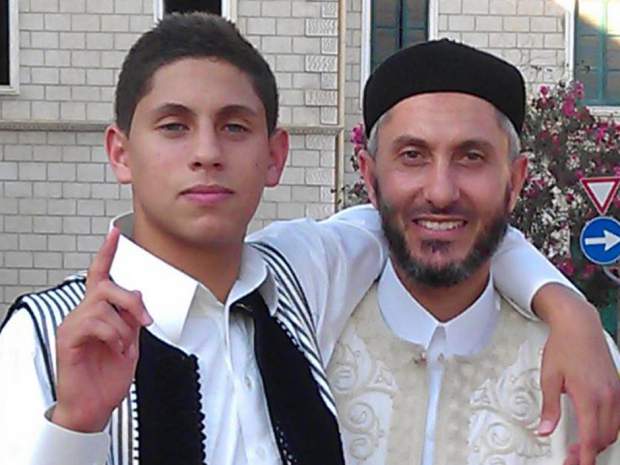Former Ottawa man killed in Libya was not an extremist, spokesman says: ‘He was absolutely normal’

TORONTO — A former Ottawa resident killed in clashes in Benghazi was inside a building hit by a crude barrel bomb dropped by forces loyal to a Libyan general, a spokesman for a Canadian-Libyan group said Monday.
“Apparently a bomb fell on that building and the building collapsed on them,” said Khaled Misellati, a Canadian Libyan Community Association trustee who knew youth, whom he said was 20 or 21. “He wasn’t fighting.”
The attack killed Owais Egwilla, the son of a former Ottawa cleric who had appeared in an August 2014 video urging “an audience of Libyan Islamist fighters to take part in jihad,” according to a de-classified Canadian intelligence report.
A more recent report by the Canadian government’s Integrated Terrorism Assessment Centre, marked “top secret” but obtained under the Access to Information Act, said Libya “continued to attract extremists” in 2014.
Allah loved you with martyrdom, which you had sought while you were still young
A notice posted on a Facebook page linked to the Shura Council of Benghazi Revolutionaries said Egwilla and another man had died “after a battle they waged against a group from the disbelieving forces,” according to the SITE Intelligence Group.
“Allah loved you with martyrdom, which you had sought while you were still young,” his uncle, Abdul Rahman Egwilla, wrote on Facebook, according to SITE. He said the death “raised the head of our entire family.”
The younger Egwilla had posted messages about jihad and Syrian al-Qaida propaganda on Facebook. A photo showed him wearing a camouflage vest. Reports said he was a member of a militia affiliated with the armed Islamist group Ansar al-Sharia.
But Misellati said Egwilla was not an extremist. “He was absolutely normal. He was in sports and mingling with his friends,” he said. The youth was a Canadian citizen, he said. “He was part of the community here. He was a nice guy.”
Matthew Fisher: Why Libya must be the next front in the war against ISIL
American warplanes strike multiple ISIL targets in Libya , ‘likely kill’ senior leader
Egwilla was not born in Canada, but arrived in 2000, he said. He stayed until finishing high school.
“He practically grew up here in Ottawa and he went back,” he said. “About two years ago he came back here by himself and stayed for some time to study English, I believe, to try to go to school here.”
But the young man returned to Libya once again.
“I don’t really know if his father was the reason for encouraging his own son to go fight,” Misellati said. But he said many Libyans were opposed to Libyan Gen. Khalida Haftar, whose forces reportedly killed the Canadian.
He said the general had no legitimacy because of his past role in the regime of dictator Col. Moammar Gadhafi and insisted that Benghazi would not accept the new United Nations-backed unity government until he was gone.
I don’t really know if his father was the reason for encouraging his own son to go fight
Misellati accused Gen. Haftar of brutally suppressing Benghazi residents and using barrel bombs, the same imprecise weapons employed by President Bashar Assad’s forces in Syria. “He is bombing his own people,” he said.
Appearing before the Senate National Security and Defence Committee Monday, the director of the Canadian Security Intelligence Service mentioned “another report yesterday or today in Libya” when asked how many Canadians had died while taking part in extremist activities abroad.
Michel Coulombe said 180 people “with a nexus to Canada” were active in overseas terrorism, including 100 in Syria and Iraq alone. Another 60 have returned to Canada, while 90 to 100 remain in Canada but intend to travel abroad.
“I don’t have the number of people who have died, but again we have to be extremely careful because I know of a number of occasions where people were reported to have been killed and resurfaced on Twitter,” Coulombe testified.
“So that’s why in our 180, the number of people overseas, we continue to count people who have reported to be killed until we have confirmation, because too many times we’ve seen that type of reporting that in the end was wrong.”
Политика конфиденциальности | Правила пользования сайтом







